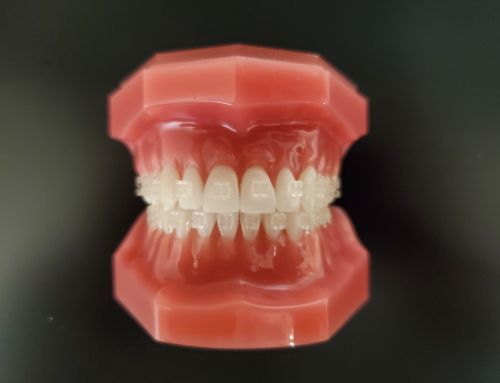How are Lingual Braces different from traditional braces?
When people think of braces, they automatically think of traditional, front-facing braces. Not as many people are aware of lingual braces, another, less-visible orthodontic option. These unique braces are placed behind the teeth that perform the same function as their front-facing counterpart.
What type of braces are right for me?
When considering orthodontic treatment, many patients want to know which method is best for them. Here at Dr. Georgaklis’ orthodontic practice in San Diego, we hope to answer some common questions in regards to lingual and traditional braces that will help you make the best decision.
- What are the benefits of invisible, behind-the-teeth braces over traditional braces?
The most obvious benefit is that they are “hidden” or “invisible” due to their placement behind the teeth. This aesthetic benefit is the primary differentiator between the two forms of treatments. - Who are the best candidates for Lingual braces?
Good candidates are adults or older teens with no baby teeth remaining, whose primary dental concern is the cosmetic appearance of their teeth during treatment. These type of braces are the only non-visible teeth straightening treatment available. Image-conscious teens, public facing professionals, and others who don’t want to draw extra attention to their dental work in progress find that this is an attractive option for their lifestyle. - What are the disadvantages of Lingual braces?
-
- Invisible braces placed behind a patient’s teeth are known to cause speech abnormalities such as a lisp. However, this side effect can be overcome with practice and the use of a wax barrier on the braces
- They are generally more expensive than traditional braces because they are more labor intensive to install and maintain
- Lingual braces treatments tend to take longer than traditional braces due to their placement
If you have any additional questions or would like to schedule a free consultation please call Dr. Georgaklis’ orthodontic practice in La Jolla at (858) 552-1223.




